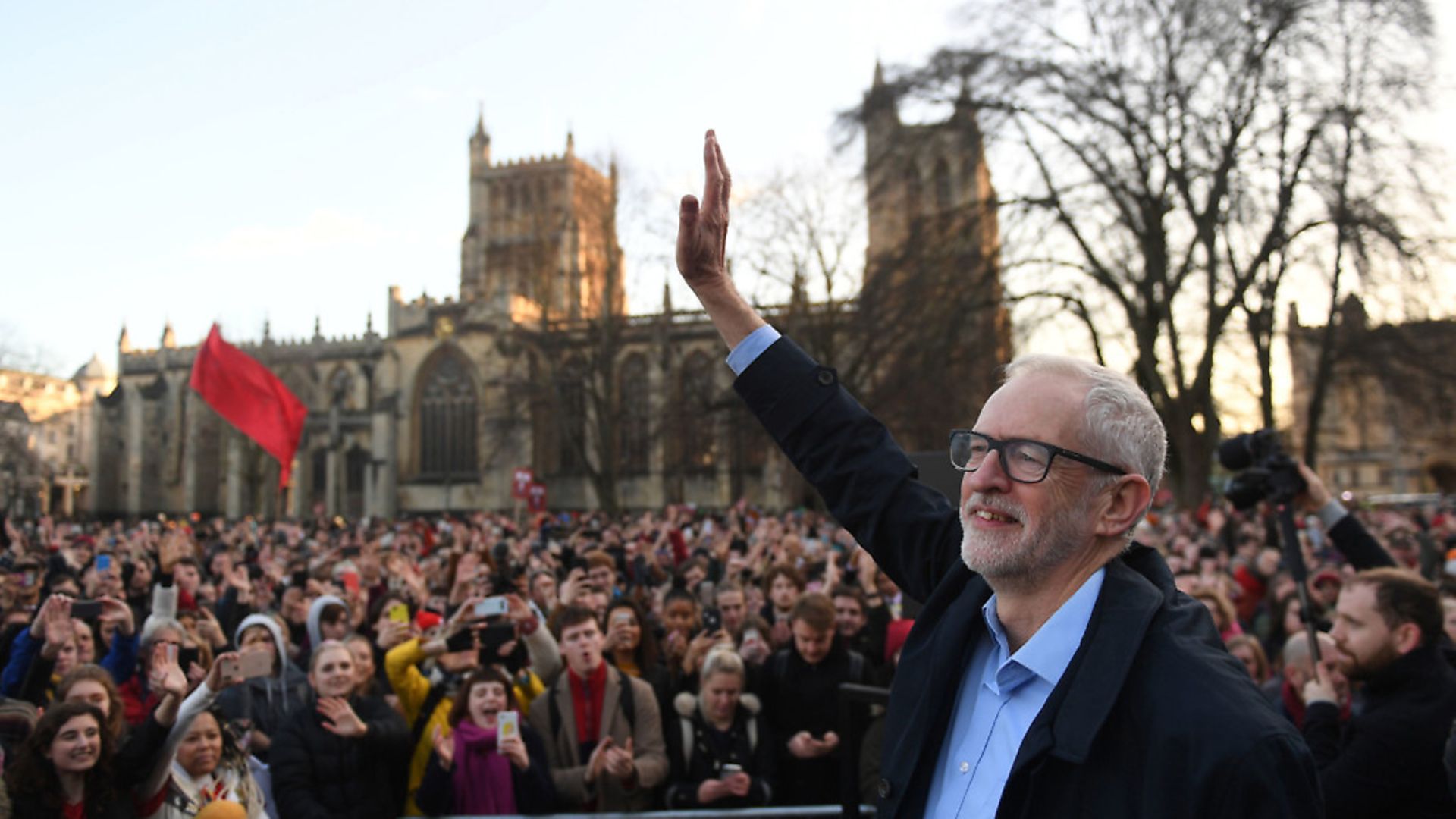
There’s a Remain majority in Britain, says ANDREW ADONIS. But in the end Jeremy Corbyn once more stood in the way of demonstrating it.
We just had the second referendum – but it was a second referendum on Corbyn, not on Brexit, which is why we lost. There was a Remain majority in the country. But there was a bigger and deeper anti-Corbyn majority, which took precedence. Particularly as the second Remain party, the Lib Dems, ran more strongly against Corbyn than Johnson, yet was too weak and hare-brained under Swinson to take the lead itself.
There were differential swings in Leave and Remain areas, with spectacular Tory gains in the Midlands and the north. That Canterbury and Putney should have Labour MPs, while Bolsover and Sedgefield have Tories, is a spectacular redrawing of the representational map of England.
But the Labour vote fell in both Leave and Remain areas – it just fell more, and from a lower base, outside London and university cities in the south. In all categories of constituency, according to exit polls, the biggest factor in Labour’s defeat was Corbyn; the second, Labour’s ludicrous everything-you-ever-wished-for manifesto; and only third Brexit, where the problem was more one of fudge than Leave or Remain.
The election was essentially a choice between Johnson ‘GET BREXIT DONE’ and Corbyn ‘PUT ME IN DOWNING STREET WITH THE IRA AND YOUR LIFE’S SAVINGS WHILE I SIT IT OUT ON BREXIT AND ANTI-SEMITISM’. Which wasn’t much of a contest.
I found this day after day on the doorstep. I had multiple more conversations about Corbyn, and why he simply could not be prime minister, than about Brexit, in both Leave and Remain seats. And I had more conversations about Corbyn’s past support for the IRA and terrorists than any other single issue.
But it wasn’t just Corbyn’s personal unfitness. Corbynism, as well as Corbyn, lost the election. Hundreds of billions were thrown about in all directions, including pointless nationalisations and £60 billion on a pension compensation scheme which largely helped the better off and wasn’t even in Labour’s “carefully costed” manifesto. Come back Tony Blair, all is forgiven. When Corbyn people say “the problem is deeper than Corbyn” they are half right. It wasn’t just Corbyn. It was the fact that he was imposed by unaccountable activists, then reimposed after Labour’s elected MPs declared him unfit for all the reasons the voters have now endorsed. I stayed in the Labour Party, despite this, because of my loyalty to a movement which, alone, can provide a democratic socialist alternative to the Tories in our first-past-the-post electoral system; and which, at the head of a broad political and social coalition, was the only way to stop Brexit.
With better tactical leadership of both Labour and the Lib Dems we could have stopped Brexit, even with Corbyn. But it had to be tactics to get to a People’s Vote on Brexit before an election on Corbyn. If we had stopped Brexit, as I believe we would have done by this means, then there was a good chance Corbyn would never have made it to an election.
But at the critical moment this October, when we were staring no-deal in the face and could have mustered a parliamentary majority for an emergency government to hold a Brexit referendum, Swinson had delusions of outright electoral victory for the Lib Dems and put party before country.
It is important to establish all this so that a myth does not take hold that Brexit was inevitable. It was the fruit of chronically bad leadership, not the hand of fate and fortune. Brexit will now happen at the end of January. So the question is whether Remain becomes Rejoin. I believe it will in time. The economic, political and strategic arguments about Britain’s place in Europe and the world, and how we are going to earn a living in the 21st century, have not changed. When Rejoin becomes viable, I can’t judge the day after the Corbyn catastrophe, especially as we still don’t know what Leave means. At least a year of intense debate inside the Tory party now ensues as to whether Brexit will be hard or soft. If it is hard, it will probably fail sooner than if it is soft.
Much clearer are two more immediate consequences of the Johnson Brexit. The triumph of the SNP makes the future of the UK highly problematic, even as Johnson refuses to grant a second independence referendum. The future of the union with Northern Ireland is equally unpredictable with the serious defeats for the DUP, particularly in Belfast. The advances for the SDLP and the cross-community Alliance party are equally significant. Sinn Féin’s vote actually fell more than any other party, including the DUP, while Alliance increased its share most. A united Ireland by consent looks ever more realistic. There is a great Japanese proverb: In politics, an inch ahead is darkness. Rarely has it been darker than on the eve of Christmas 2019.









